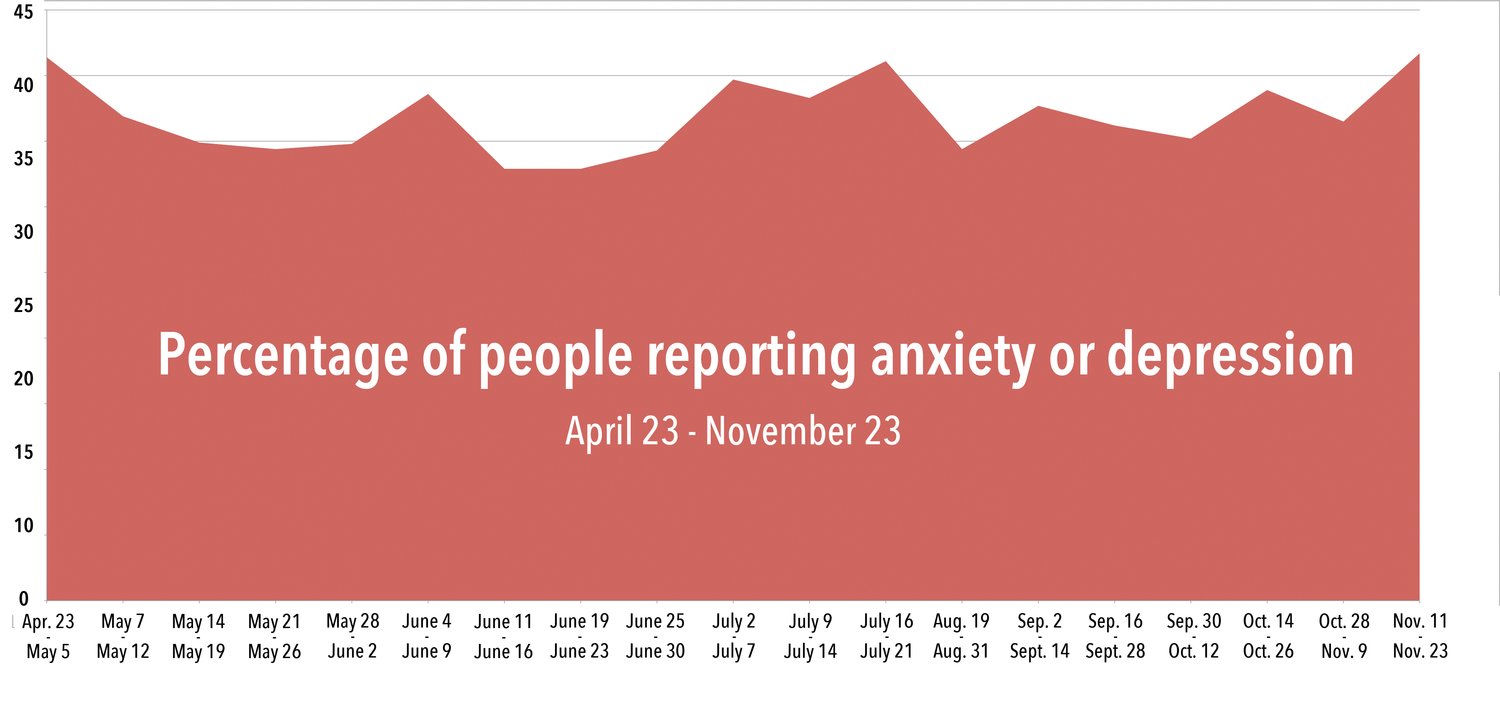Mental health groups face funding cuts as cases rise

Nonprofit mental health services in New York are facing a cut in state aid at a time when many people are struggling with anxiety and depression as a result of the coronavirus pandemic, conditions that experts warn could worsen over the holiday season.
The state offices of Mental Health and Addiction Services notified county officials in June that public funding for community providers would be cut by 20 percent across the board, as the state waited for Congress to pass Covid relief funding that would support core programs, like those that provide basic mental health services and support. The State Budget Division later confirmed that it would cut $8 billion in aid for those services from New York’s budget.
“It makes no sense,” said Dr. Joseph Smith, executive director of Long Island Reach, which has offices in Long Beach and Franklin Square, noting that the government is supposed to provide residents with support during crises. “They’re just not making the choices to direct the resources to where they’re needed,” Smith added, saying that without the financial assistance, he would have to furlough his entire staff and risk not being able to get reimbursements from Medicaid and Medicare.
“It’s like an impossible, untenable position we’ve been put in,” he said.
But Long Island Reach — a community-based organization that provides social, psychological, emotional and legal assistance to those in need, along with counseling, treatment and educational services — has made nearly 19,000 telehealth visits since the pandemic began in March, and has seen an increase in the number of patients as well as in the severity of their problems, Smith said, with more people harming themselves and becoming heavily reliant on drugs or alcohol.
According to a study by the Centers for Disease Control and Prevention, an average of 36.6 percent of New Yorkers surveyed from April 23 to July 21 reported having symptoms of anxiety or depression, and nationally, more than one in three adults reported having those symptoms. Only about one in 10 Americans reported having anxiety or depression symptoms between January and July 2019.
Additionally, 13.3 percent of respondents reported having “new or increased substance use as a way to manage stress” due to the pandemic, and 10.7 percent of adults reported having suicidal thoughts over the previous 30 days.
Smith attributes the rise in cases to an increase in the number of people feeling lonely and lacking a sense of belonging during the pandemic. Many people have been laid off from their jobs in recent months, and parents have struggled with supervising their children’s remote learning. Children, meanwhile, Smith said, are dealing with the uncertainty of whether schools will remain open.
As a result, he said, many relationships have become volatile, and many people are becoming lethargic. “This [pandemic] doesn’t have an end in sight,” Smith said. The uncertainty can deepens people’s desperation and fear, which may only worsen during the holiday season, when many people usually gather with friends and family members.
“We all look forward to getting together with families and friends,” Smith said, adding, “it’s a wonderful thing, coming together,” and not being able to socialize with people “is antithetical to human nature.”
So, he said, it is important to keep in contact with loved ones this holiday season and ask people how they are doing, which, Smith said, “goes a long way because it shows that someone is listening, and gives them a chance to speak to someone.”
He added that if a friend or family member is withdrawing from their activities, becoming irritable or edgy or having trouble eating or sleeping, “these are all indicators that something’s going on,” and that friend or family member should get some help.
Anyone who is having mental health issues can call Long Island Reach at (516) 899-2332.

 50.0°,
Overcast
50.0°,
Overcast 




